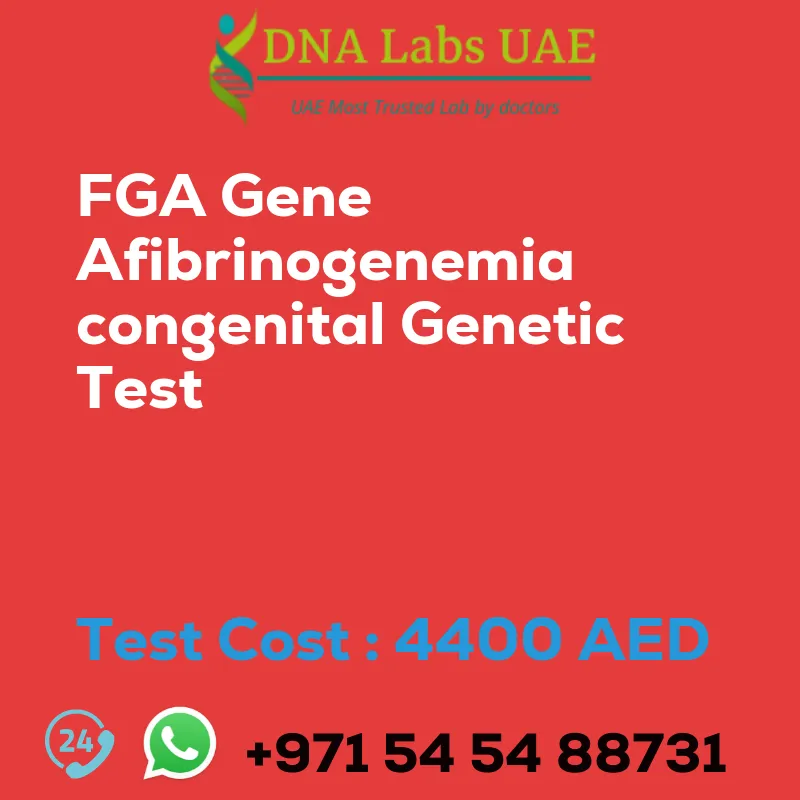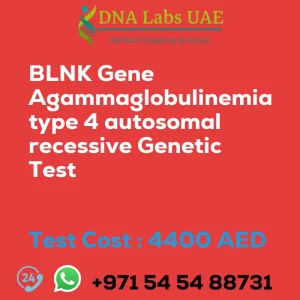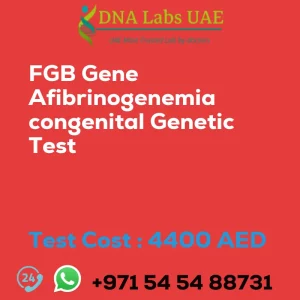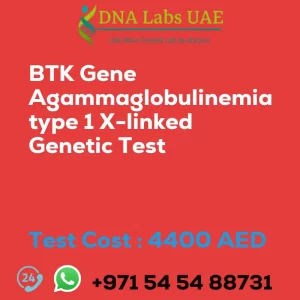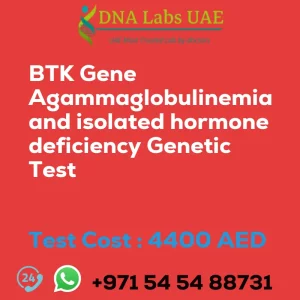FGA Gene Afibrinogenemia Congenital Genetic Test
Welcome to DNA Labs UAE, a leading genetic laboratory specializing in genetic testing. Today, we will be discussing the FGA Gene Afibrinogenemia Congenital Genetic Test, including its cost, symptoms, diagnosis, and other important details.
Test Name: FGA Gene Afibrinogenemia Congenital Genetic Test
Components:
- Price: 4400.0 AED
- Sample Condition: Blood or Extracted DNA or One drop Blood on FTA Card
- Report Delivery: 3 to 4 Weeks
- Method: NGS Technology
- Test Type: Hematology
- Doctor: Hematologist
- Test Department: Genetics
Pre Test Information
Prior to undergoing the FGA Gene Afibrinogenemia Congenital Genetic Test, it is important to provide the clinical history of the patient. Additionally, a genetic counseling session will be conducted to draw a pedigree chart of family members affected with the FGA Gene Afibrinogenemia Congenital Genetic Test gene FGA.
Test Details
FGA gene afibrinogenemia is a rare genetic disorder characterized by the absence or deficiency of fibrinogen, a blood clotting protein. This condition is caused by mutations in the FGA gene, which provides instructions for making one of the three subunits of fibrinogen.
Congenital NGS (Next-Generation Sequencing) genetic testing is a type of genetic test that uses advanced sequencing technology to analyze multiple genes simultaneously. In the case of FGA gene afibrinogenemia, this test can identify mutations or variants in the FGA gene and other relevant genes associated with afibrinogenemia.
The NGS genetic test for FGA gene afibrinogenemia involves obtaining a DNA sample, usually through a blood sample, from the affected individual. The DNA is then sequenced to identify any genetic changes or mutations that may be responsible for the disorder.
The test results can help in confirming the diagnosis of afibrinogenemia and determining the specific genetic mutation present in the FGA gene. This information is important for genetic counseling, understanding the inheritance pattern, and guiding appropriate management and treatment options for individuals with afibrinogenemia.
At DNA Labs UAE, we are committed to providing accurate and reliable genetic testing services. If you suspect that you or a family member may have FGA gene afibrinogenemia, we encourage you to consult with a hematologist and consider undergoing the FGA Gene Afibrinogenemia Congenital Genetic Test.
| Test Name | FGA Gene Afibrinogenemia congenital Genetic Test |
|---|---|
| Components | |
| Price | 4400.0 AED |
| Sample Condition | Blood or Extracted DNA or One drop Blood on FTA Card |
| Report Delivery | 3 to 4 Weeks |
| Method | NGS Technology |
| Test type | Hematology |
| Doctor | Hematologist |
| Test Department: | Genetics |
| Pre Test Information | Clinical History of Patient who is going for FGA Gene Afibrinogenemia, congenital NGS Genetic DNA Test. A Genetic Counselling session to draw a pedigree chart of family members affected with FGA Gene Afibrinogenemia, congenital NGS Genetic DNA Test gene FGA |
| Test Details |
FGA gene afibrinogenemia is a rare genetic disorder characterized by the absence or deficiency of fibrinogen, a blood clotting protein. It is caused by mutations in the FGA gene, which provides instructions for making one of the three subunits of fibrinogen. Congenital NGS (Next-Generation Sequencing) genetic testing is a type of genetic test that uses advanced sequencing technology to analyze multiple genes simultaneously. This test can identify mutations or variants in the FGA gene and other relevant genes associated with afibrinogenemia. The NGS genetic test for FGA gene afibrinogenemia involves obtaining a DNA sample, usually through a blood sample, from the affected individual. The DNA is then sequenced to identify any genetic changes or mutations that may be responsible for the disorder. The test results can help in confirming the diagnosis of afibrinogenemia and determining the specific genetic mutation present in the FGA gene. This information is important for genetic counseling, understanding the inheritance pattern, and guiding appropriate management and treatment options for individuals with afibrinogenemia. |

